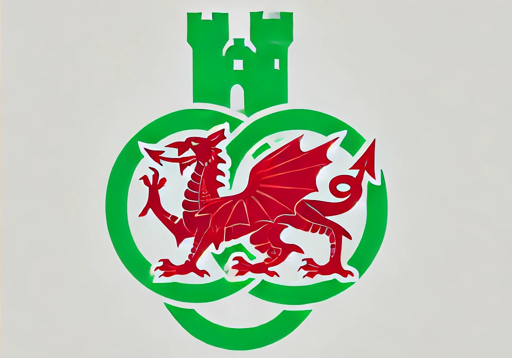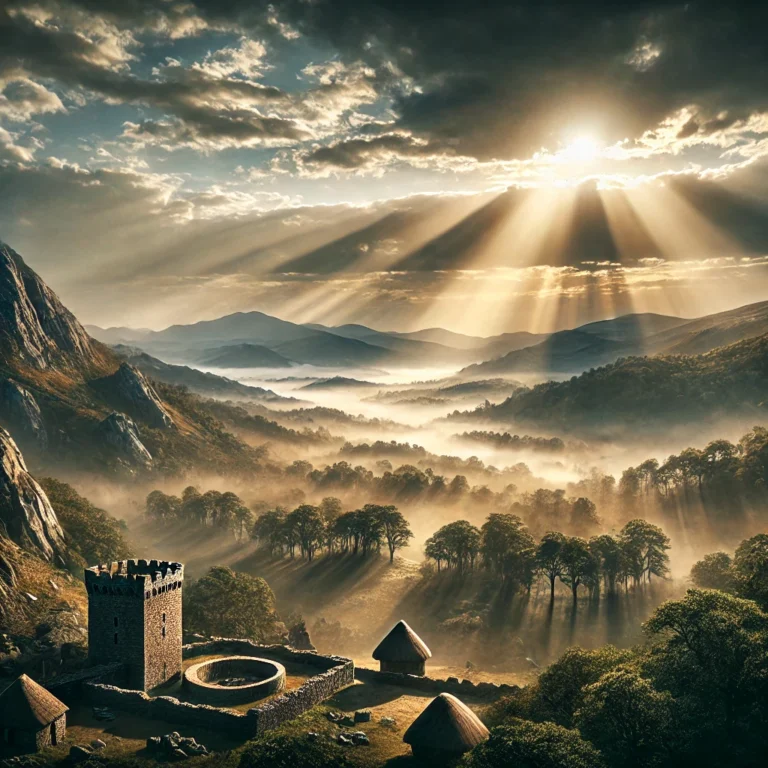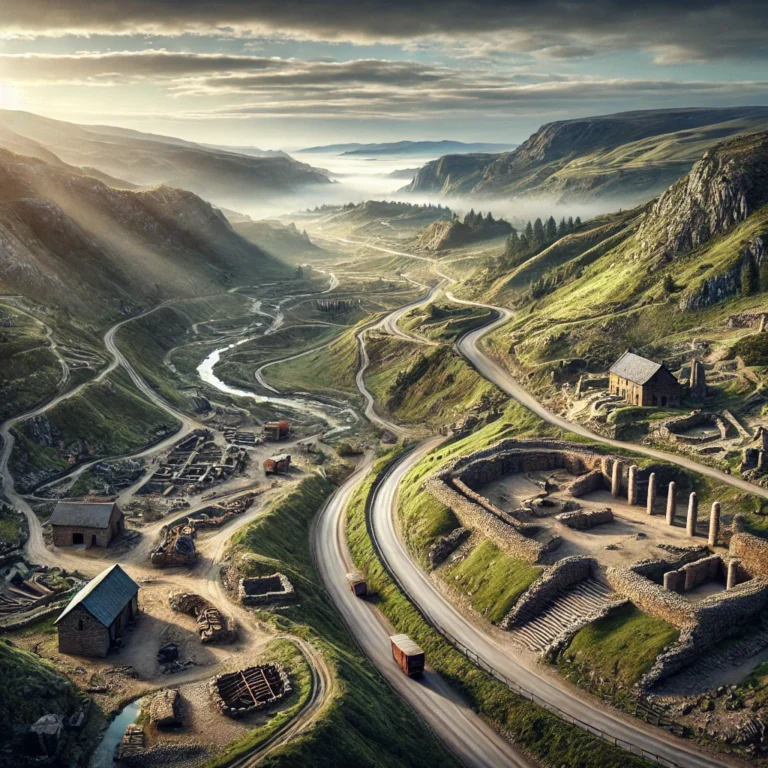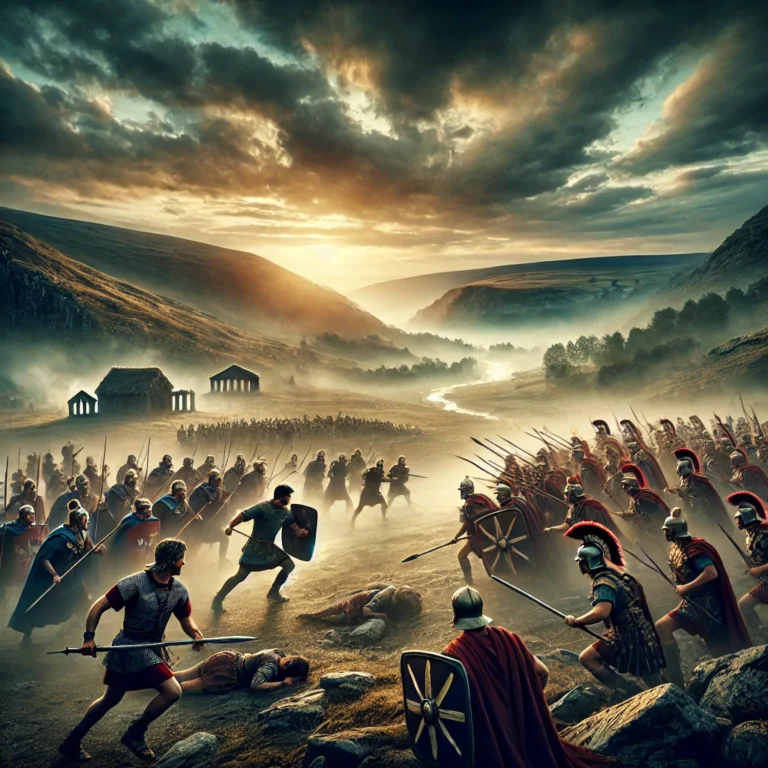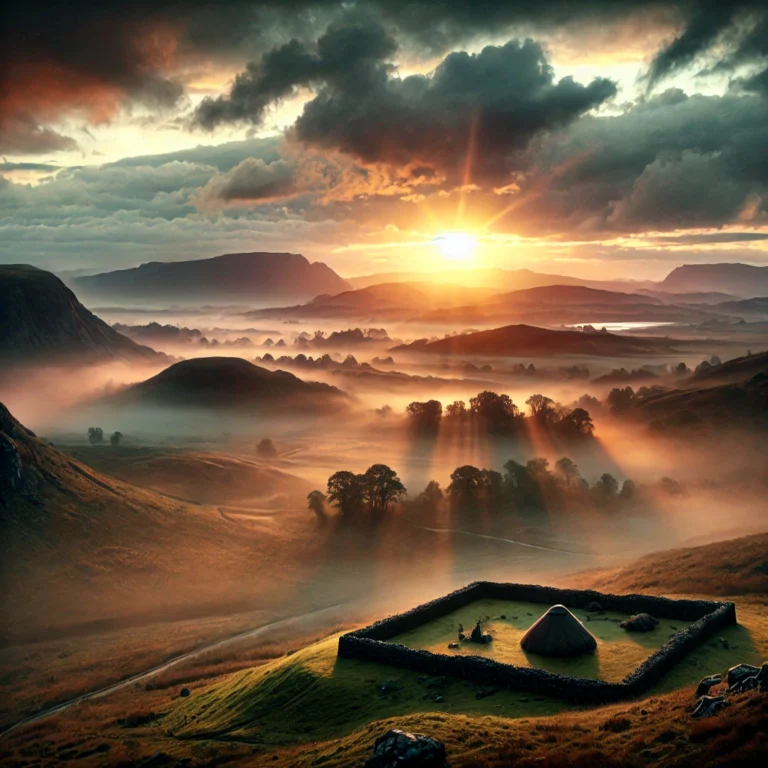The Druids were far more than mystical figures in robes; they were the heart and soul of Celtic society, revered as wise healers, spiritual guides, and protectors of tradition. In Wales, Druids held a unique position that combined religious leadership, legal authority, and cultural preservation. Their legacy in Ancient Welsh culture is profound, woven into the land’s folklore, beliefs, and history. This article explores the role of Druids in Wales, their beliefs and practices, their resistance against the Romans, and their enduring impact on Welsh culture.
Who Were the Druids?
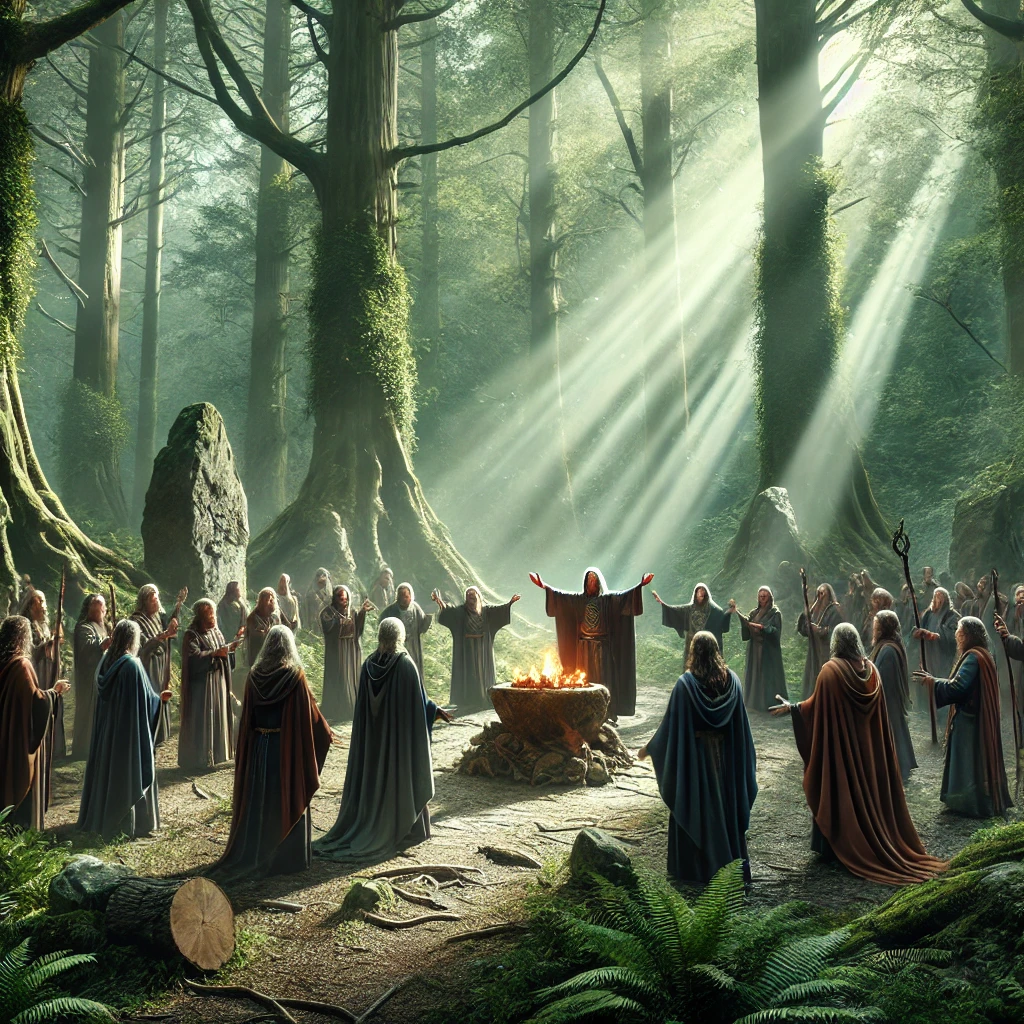
The Druids were not only religious leaders but also the custodians of ancient knowledge and legal systems. They held a profound influence over Celtic society, shaping laws and culture in ways that persisted long after their decline.” – Dr. Miranda Aldhouse-Green, Professor of Archaeology and expert on Celtic spirituality.
Druids in Wales were essential figures in ancient Celtic Pre-Roman Wales society, respected and often feared for their knowledge and spiritual power. Known as keepers of lore, judges, and healers, Druids held a status that transcended mere religious figures. They were also advisers to the chieftains, influencing decisions that affected the entire tribe. Druids were thought to possess a mystical connection to the natural world, which they used to guide their people through both spiritual and earthly matters.
Druids as Keepers of Knowledge
In ancient Wales, Druids were the guardians of cultural knowledge. They preserved oral traditions, songs, and stories, passing down the collective wisdom of the Celtic people through generations. Unlike modern scholars who rely on written records, Druids committed these teachings to memory, ensuring that each tale, law, and lesson remained intact. This commitment to oral tradition created a rich, cohesive Celtic identity across the Welsh tribes.
Beliefs and Practices of Druids in Wales
Druidic rituals often took place in natural settings, symbolising their deep connection with the earth and natural elements. These ceremonies fostered a unique spirituality that emphasized harmony with the land.” – Dr. Ronald Hutton, Historian of Pagan and Ancient Spiritual Practices.
Druids in Wales followed a set of spiritual beliefs deeply rooted in nature. They believed that everything in the natural world—trees, rivers, animals—was imbued with spirit and meaning. Their rituals often took place in sacred groves, especially in oak forests, which they considered to be powerful spiritual places. These groves served as both temples and classrooms, where the Druids conducted rituals, taught their students, and communed with nature.
Role of Sacred Groves and Trees
Oak trees held particular significance for Druids in Wales, symbolising wisdom, strength, and endurance. Sacred groves of oaks were considered sanctuaries, where Druids would gather for ceremonies. These groves were not merely physical locations; they were spaces believed to connect the earthly realm with the spiritual world. Rituals conducted in these groves often involved offerings to the gods, seasonal celebrations, and invocations to the ancestors.
Animal Symbolism and Nature Worship
Druids were deeply connected to the animal world, and certain animals were seen as symbols of specific virtues or powers. The stag represented leadership, the boar courage, and the raven wisdom. These animals were often invoked in Druidic rituals and were believed to carry messages from the spiritual realm. This reverence for nature and animals became embedded in Welsh culture, reflecting the Druidic belief in the interconnectedness of all living things.
Druids as Healers and Advisors
One of the most respected roles of Druids in Wales was that of the healer. Druids were skilled in the use of medicinal herbs and natural remedies, understanding the healing properties of plants long before modern medicine. They combined physical treatments with spiritual practices, often invoking the blessings of the gods for a successful healing. Their holistic approach to health was highly respected and sought after within the community.
Healing Practices of Druids in Wales
Druids in Wales were renowned for their herbal knowledge, using plants like willow for pain relief and mistletoe for various ailments. They believed that each plant had a spirit, and this spirit could aid in healing. Their practices were holistic, addressing the body, mind, and spirit. For instance, a Druid might prescribe an herbal remedy for a physical ailment while also performing a ritual to restore spiritual balance.
Advisors to Leaders
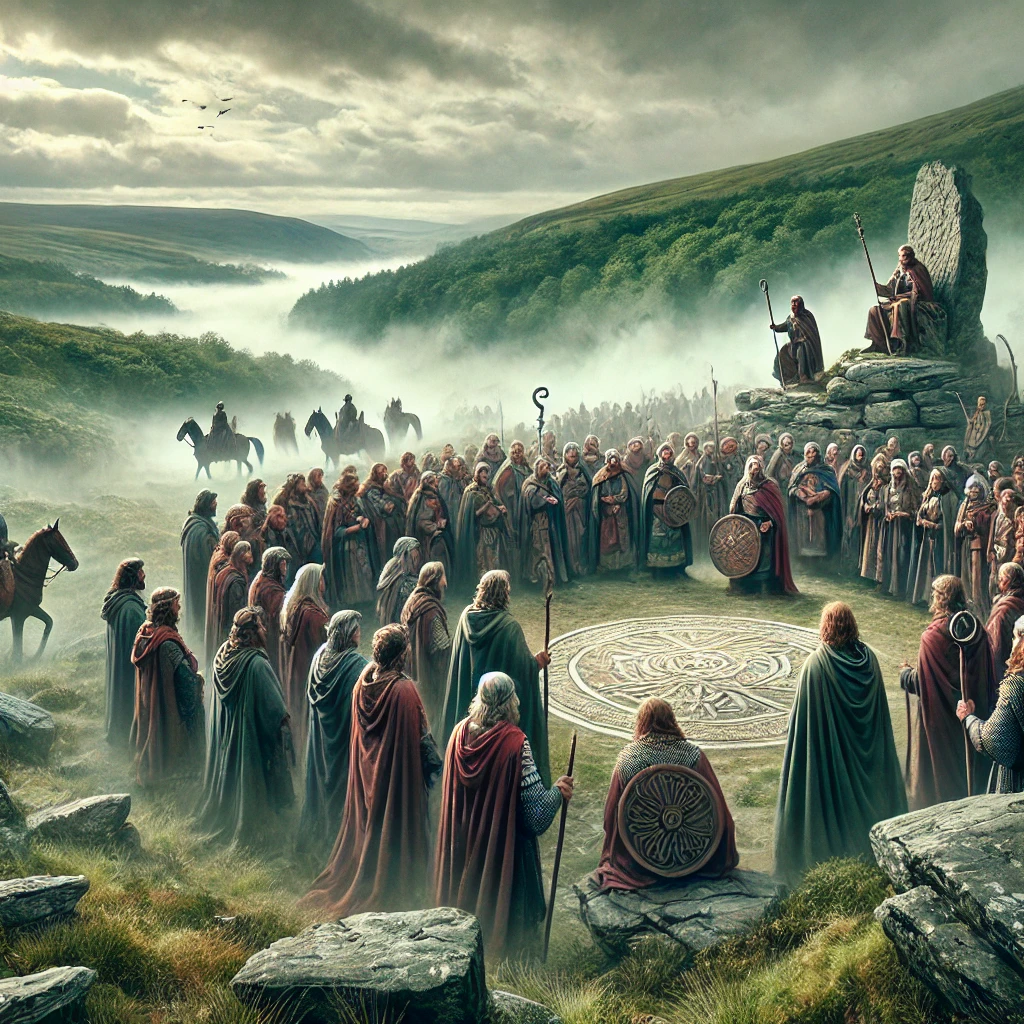
Beyond healing, Druids in Wales were trusted advisors to the chieftains. Their counsel was invaluable, often guiding decisions related to war, diplomacy, and governance. Druids were respected for their wisdom and foresight, and their guidance was sought in times of crisis.
They would interpret omens, perform divinations, and provide advice based on both spiritual insights and a profound understanding of human nature. This advisory role solidified the Druids’ influence within Welsh tribal society, as their counsel could determine the fate of entire communities.
Druids and Resistance Against the Romans
The Druids of Wales were not only spiritual figures but also symbols of resistance, inspiring tribes to stand against Roman incursions. Their influence extended into the political sphere, where they encouraged unity among fragmented tribes.” – Dr. Barry Cunliffe, Archaeologist and specialist in Ancient Britain.
Druids in Wales played a crucial role in uniting the tribes against Roman invaders. The Romans viewed the Druids as a threat to their rule, not only for their influence over the people but also for their commitment to Celtic traditions and independence. The Druids inspired a fierce resistance, symbolising the spirit of Wales in defiance against foreign rule.
Druids as Symbols of Resistance
For the Celtic tribes in Wales, Druids were more than spiritual leaders—they were symbols of resilience and cultural pride. When the Romans attempted to impose their rule, the Druids encouraged the tribes to resist, using their influence to unite the people in a common cause. Stories of Druidic bravery, sacrifice, and defiance became legendary, reinforcing their status as protectors of Welsh independence and identity.
The Assault on Anglesey
The Roman assault on Anglesey, known in Welsh as Ynys Môn, marked one of the most dramatic confrontations between the Romans and Druids in Wales. Anglesey was a sanctuary for the Druids, a place where they gathered to conduct their most sacred rites.
The Romans, led by Governor Suetonius Paulinus, launched a brutal attack on the island in 60 AD, aiming to eradicate the Druids and diminish their influence. According to historical accounts, the Druids, along with women and warriors, stood on the shores chanting curses as the Roman legions approached—a haunting image that has endured in Welsh folklore.
This assault on Anglesey was a devastating blow to the Druidic order, yet their legacy of resistance lived on.
The Enduring Legacy of Druids in Welsh Culture
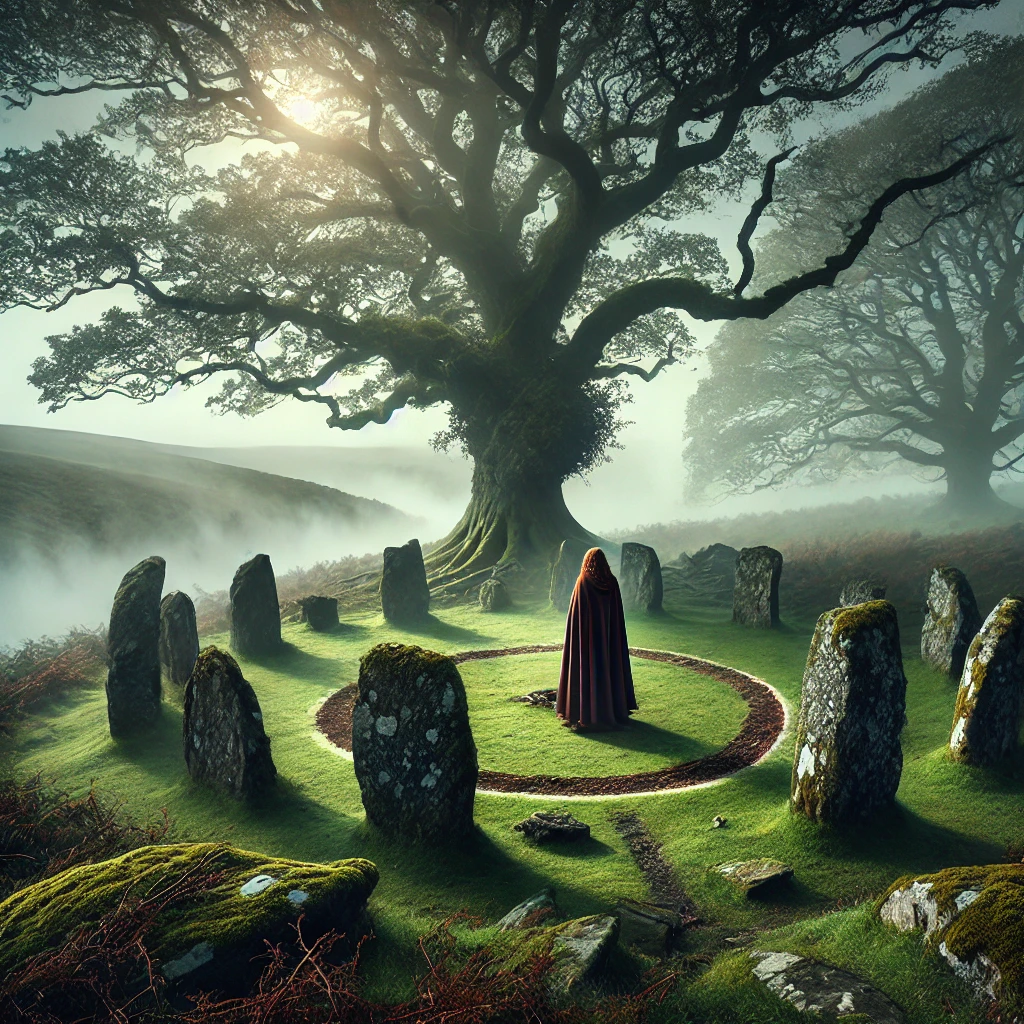
While Druidic traditions largely vanished with Romanization, echoes of their practices and values linger in Welsh folklore and local traditions, testament to their lasting impact on Welsh cultural identity.” – Dr. Peter Berresford Ellis, Historian and author on Celtic traditions.
Though the Roman invasion aimed to erase the influence of Druids in Wales, their legacy endured through centuries. Today, Druids are celebrated in Welsh folklore, literature, and festivals, representing a vital link to Wales’s ancient Celtic roots. Modern-day Neo-Druidic movements in Wales honour these ancient practices, drawing inspiration from the Druids’ deep connection to nature and their role as spiritual leaders.
Druids in Welsh Folklore and Modern Culture
The Druids’ impact on Welsh culture is still evident in folklore and legends. Stories of mystical Druidic powers, healing abilities, and wisdom continue to captivate Welsh storytelling. Festivals such as the Eisteddfod incorporate elements of Druidic tradition, celebrating Welsh heritage with rituals and ceremonies inspired by ancient practices. These cultural expressions keep the spirit of the Druids alive in contemporary Wales.
Modern Neo-Druids in Wales
In recent years, Neo-Druidism has gained popularity in Wales, with practitioners drawing on historical Druidic beliefs and practices. These modern-day Druids gather in sacred natural sites, perform seasonal rituals, and uphold the Druidic respect for nature. Though distinct from their ancient counterparts, Neo-Druids seek to revive and honour the essence of Druidic spirituality, reflecting the ongoing influence of Druids in Wales.
Key Takeaways:
- Ancient Wisdom: Druids in Wales held a profound influence over society, acting as spiritual leaders, healers, and judges, deeply rooted in nature and Welsh culture.
- Sacred Sites: Locations like Anglesey were central to Druidic practice, serving as places of worship and community gatherings, leaving a lasting legacy in Welsh history.
- Roman Conflict: The Romans saw the Druids as a threat due to their influence over Welsh tribes, leading to a brutal assault on Anglesey in an attempt to eradicate their power.
- Enduring Legacy: Despite Roman efforts, the legacy of the Druids survived, woven into Welsh folklore and inspiring cultural pride that endures in Wales to this day.
Conclusion
The legacy of Druids in Wales is woven into the fabric of Welsh culture and identity. From their deep connection to nature to their resistance against Roman oppression, Druids left an indelible mark on the Welsh spirit. Their teachings, practices, and beliefs have been preserved through folklore, modern Neo-Druid movements, and the enduring reverence for nature found in Welsh culture. The story of Druids in Wales is a testament to the resilience of Celtic traditions and the power of spirituality to unite and inspire a people.
Matt
